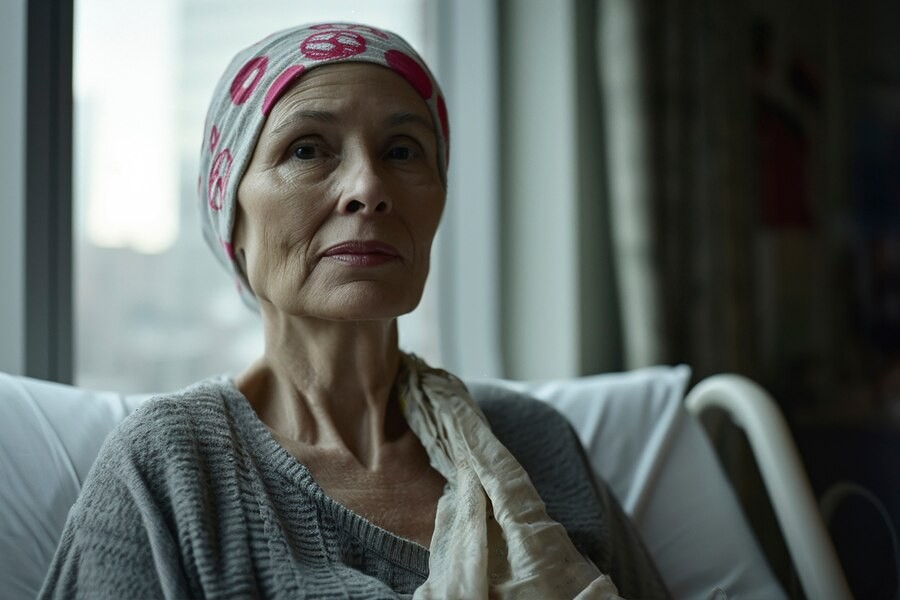Fatigue is a common experience, especially after physical activity. However, certain health conditions can lead to fatigue that persists, even after you have adequate rest.
Fatigue is a frequent symptom for cancer patients. Unlike typical tiredness that can be relieved with rest, fatigue caused by cancer is often more intense, lasts much longer, and does not improve even after resting. This condition is known as cancer-related fatigue.
Why Do Cancer Patients Feel Tired Easily?
Cancer-related fatigue (CRF) is a type of fatigue that many cancer patients experience, both during and after their treatment. It can last for months or even years and often disrupts daily life.
Cancer-related fatigue can be caused by several factors, including:
The Impact of Cancer Cells on the Body
Cancer cells grow uncontrollably and consume a lot of the body's energy that would normally be used for other functions. This energy depletion can leave the body feeling much more tired than it would in a healthy state.
Treatment Side Effects
Various cancer treatments can contribute to fatigue. For instance, chemotherapy often leads to fatigue because it lowers the production of red blood cells, reducing the body’s oxygen supply.
As cancer cells are destroyed, the body must eliminate the remnants, that puts strain on the immune system and metabolism, making the body feel more exhausted.
Cancer-Related Anemia
Many cancer patients experience anemia, that can be caused by tumor bleeding, bone marrow damage, or as the side effects of cancer treatments. Since red blood cells are essential for transporting oxygen throughout the body, anemia can lead to extreme fatigue.
Insomnia
Cancer patients frequently struggle with sleep problems, either due to anxiety or conditions like sleep apnea. Poor sleep quality can hinder the body’s recovery, worsening the fatigue.
Lack of Physical Activities
Cancer patients often have decreased physical activities due to pain or weakness. This lack of activities can worsen the fatigue, as muscles weaken and the body struggles to generate enough energy.
Nutritional Deficiencies
Cancer and its treatments can cause changes in appetite, nausea, or difficulty swallowing, which may affect nutrient intake. This can result in nutritional deficiencies, leading to decreased muscle mass and a lack of iron and vitamins, which are essential for energy production.
How to Treat Cancer-Related Fatigue
While cancer-related fatigue can’t always be avoided, there are several strategies that can help manage it:
-
Establish a consistent sleep schedule to ensure adequate rest.
-
Avoid caffeine and alcohol before bedtime.
-
Practice relaxation techniques to improve sleep quality.
-
Increase your nutritional intake by eating protein- and iron-rich foods to help prevent anemia.
-
Engage in light exercise, such as walking, based on your body’s condition.
-
Manage stress and emotions by participating in enjoyable activities.
If your fatigue becomes overwhelming and impacts your daily life, it’s important to consult your doctor. You can also use the consultation service available on the Ai Care app, which you can download from the App Store or Play Store.
Looking for more information about other diseases? Click here!
- dr Hanifa Rahma
Jill Seladi-Schulman, PhD (2023). Understanding Cancer Dizziness and Fatigue. Available from: https://www.healthline.com/health/cancer/cancer-dizziness-fatigue
American Cancer Society (2024). Cancer-related Fatigue. Available from: https://www.cancer.org/cancer/managing-cancer/side-effects/fatigue-weakness-sleep/fatigue.html
Cancer Research UK (2023). What is cancer fatigue?. Available from: https://www.cancerresearchuk.org/about-cancer/coping/physically/fatigue/what-is-cancer-fatigue
Canadian Cancer Society (2024). Side effects of chemotherapy. Available from: https://cancer.ca/en/treatments/treatment-types/chemotherapy/side-effects-of-chemotherapy












